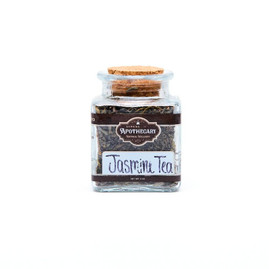
-

-

-

-

-

-

Creative Zest - Herbal Creative Blend Tea
$7.50 - $15.00 -

Ginger Turmeric Tea - Organic Immunity Blend
$7.50 - $15.00 -

Enlightened Trio Blend - Energy & Wellness Tea
$7.50 - $15.00
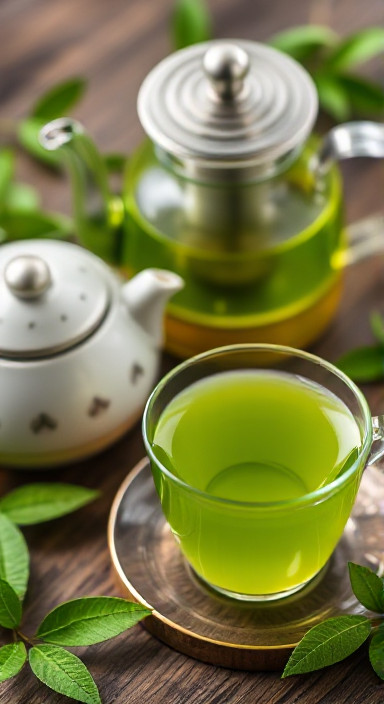
What is Green Tea?
Green tea is unoxidized tea and is created from the leaves of the camellia sinensis plant. Leaves are harvested partially wilted; they are then immediately steamed to preserve its green color and to prevent the oxidization process or its fermentation, which can trigger the tea to change flavors, the immediate steaming of the green tea leaves is most important to stop the fermentation process. Creators of outstanding green teas have perfected the steam time to create the best green teas and unique flavor that is only found in green tea.
Types of Green Tea
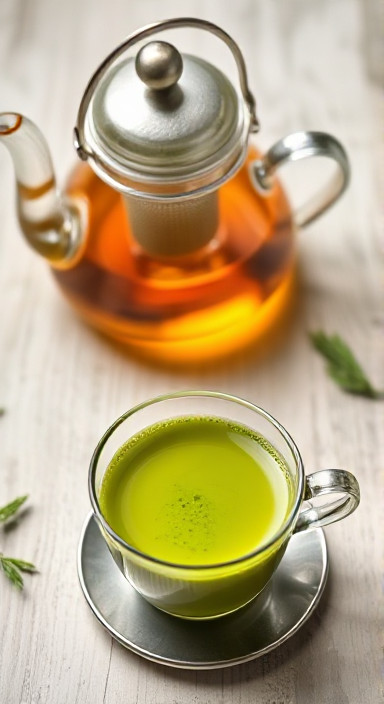
Matcha Green Tea
Matcha is fine ground tea powder made from Tencha leaves. Matcha preparation is the most important part of making Matcha tea, you whisk tea powder with hot water in a ceramic bowl. Matcha’s fragrant sweet flavor is created by the amino acids in the tea.
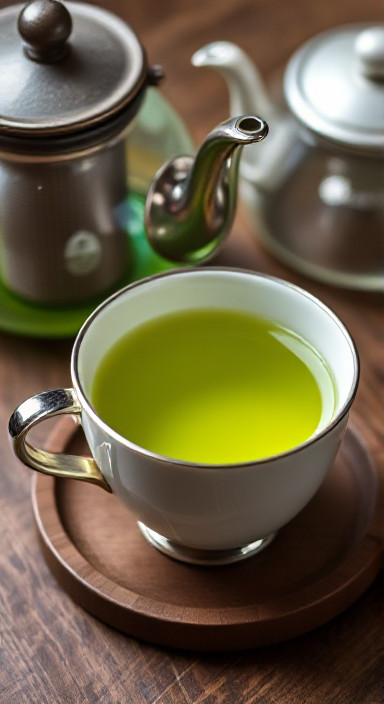
Sencha Green Tea
Sencha tea leaves are harvested and then directly exposed to sunlight. Sencha gets its name from its distillation method and delivers a slightly cutting cup of tea with bright grassy notes.
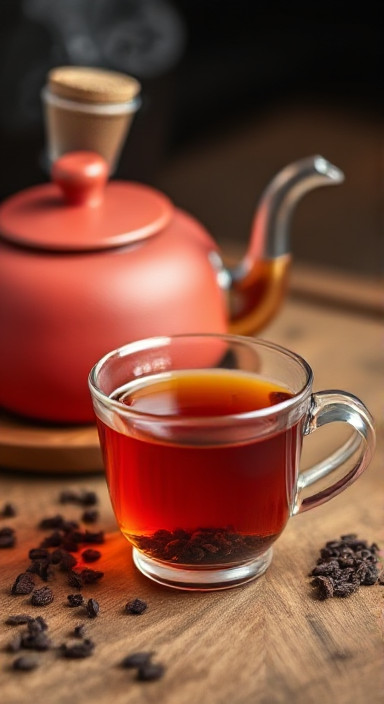
Gunpowder Tea
Gunpowder green tea leaves are snugly rolled into the shape of small bits or pellets which resembles gunpowder, and the tea’s name. Gunpowder tea has a bold & lightly smoky flavor since it’s roasted which also yields a higher concentration of caffeine (35-40 mg/8 oz serving). Gunpowder tea also can retain flavor for numerous steeping due to its powerful and robust flavor profile.
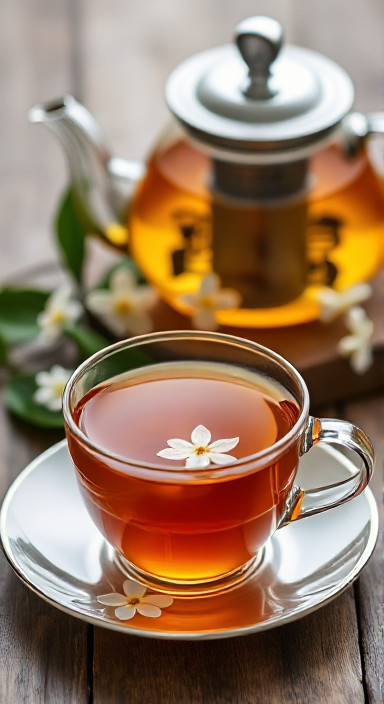
Jasmine Tea
Jasmine tea is created with fresh jasmine blossoms, which provides a sweet flowery flavor to the tea. Jasmine tea most often has a green tea base, but you can also utilize white, black, and oolong jasmine-scented teas.
Green Tea FAQ


